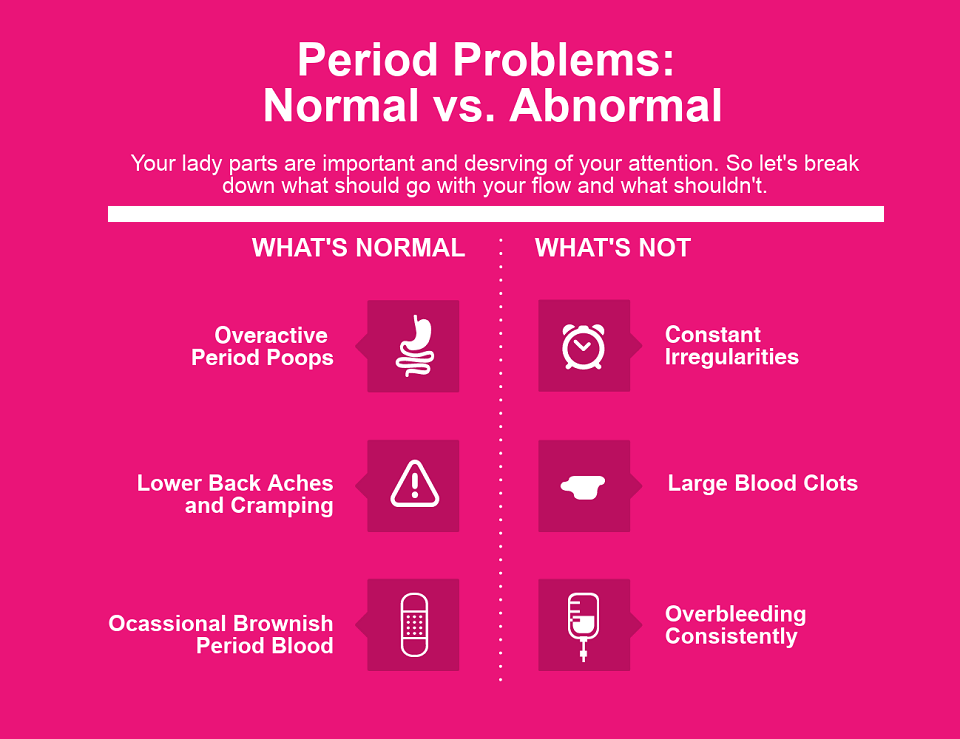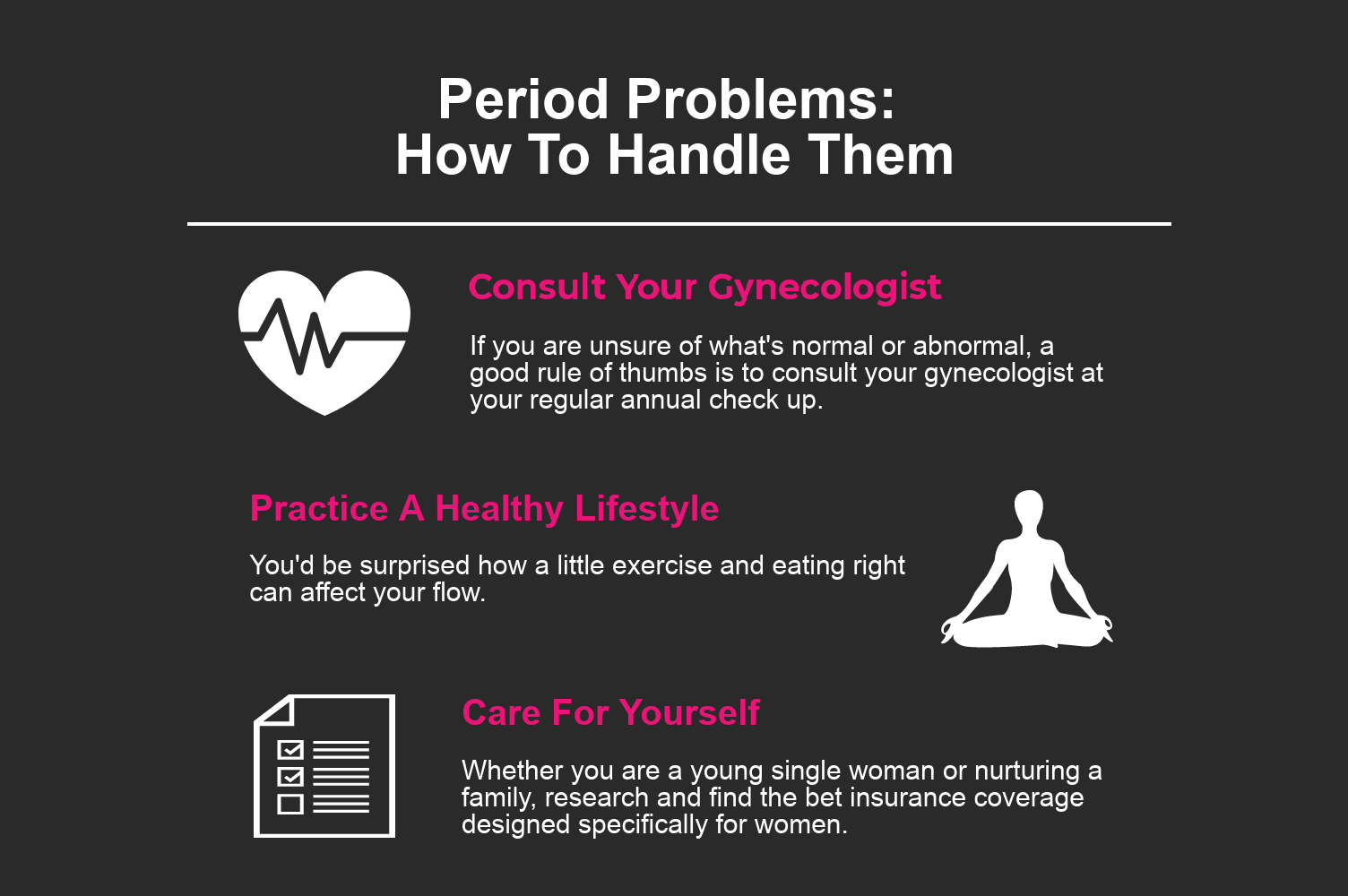While there are many WebMD-esque articles out there, most of them basically leave you with the impression that you’re about to die because of any tiny irregularity. Let us clarify our thoughts on the matter with a simple exploration of common problems to have during periods, along with the more important signs that indicate you should get medical attention.
While most women have some variation with their periods, if something is off down there, it’s important to know what’s going on and hopefully catch a problem before it gets worse. But let’s break down what (normally) goes with your flow and what to worry about.










